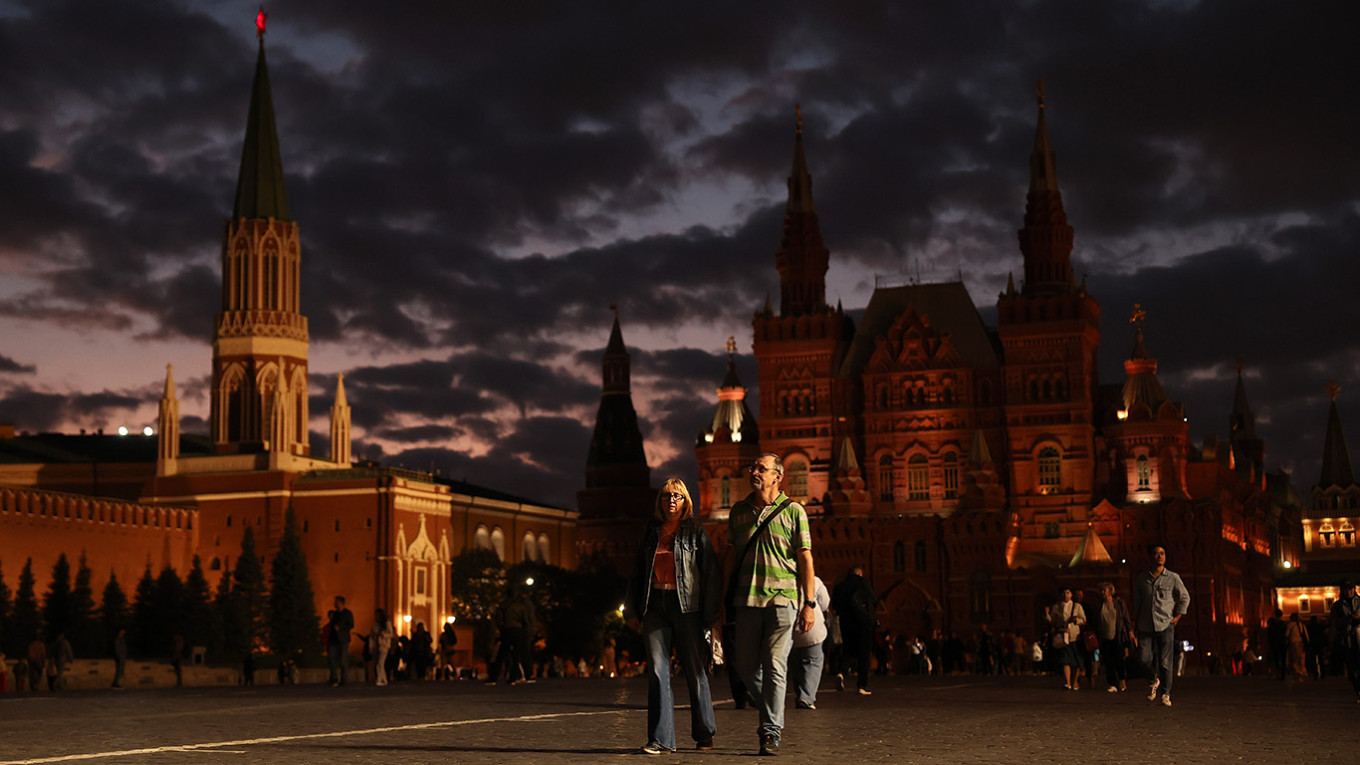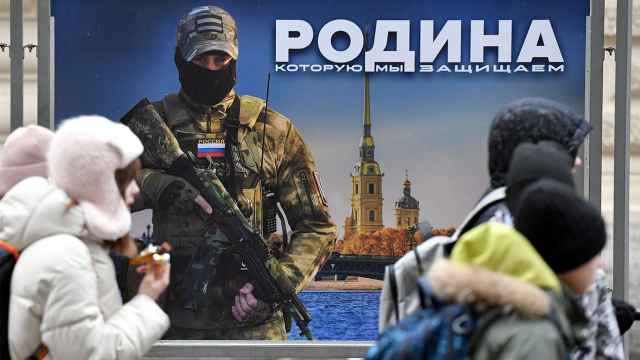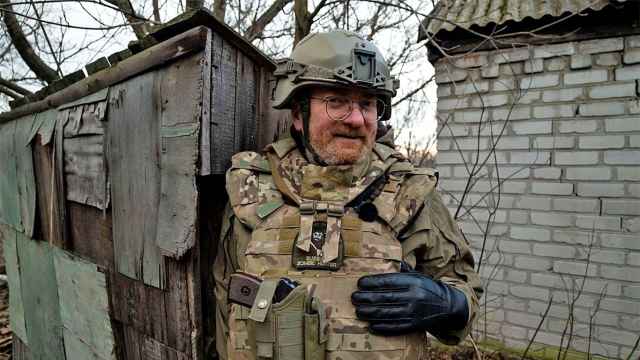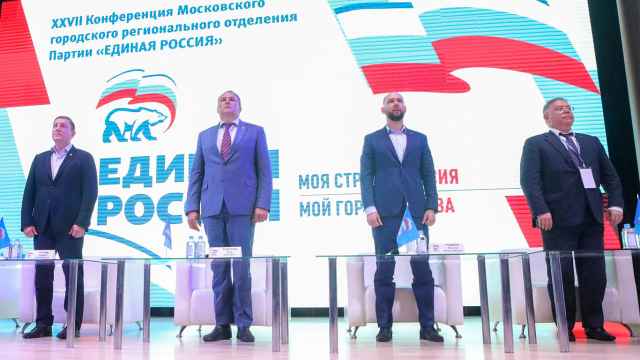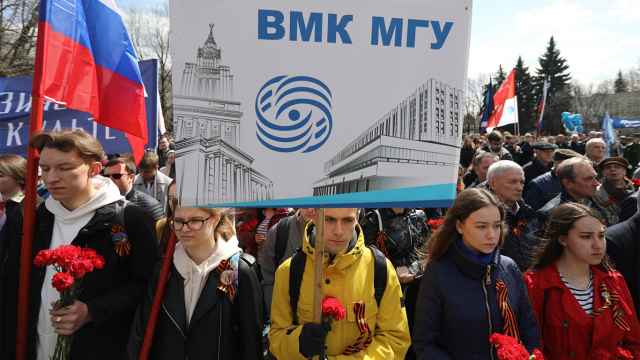On Feb. 20, at a forum in Moscow Irene Cecchini – an Italian final-year student at Moscow State Institute of International Relations – urged President Vladimir Putin to streamline “impatriation” for like-minded foreigners. She argued from experience that it is in Russia’s long-term socioeconomic interest to afford non-citizens who identify with its strict moral code a greater sense of permanency and belonging.
By the end of August, Putin had officially signed off on this grassroots initiative, greenlighting the extension of temporary residence permits to those disillusioned with the identity politics and militant wokeism rampant across the West. Last week, the Russian Foreign Ministry came up with a list of predominantly “unfriendly” OECD nations whose passport holders can apply for the “shared values visa (SVV)."
The visa's unique selling point is that unlike European Golden Visa programs or points-based migration into the Commonwealth, the rejection of progressivism takes precedence over materialistic considerations and marketable skills prospective applicants may bring.
That said, embracing conservative ideals is not the only determinant of whether these newcomers will be a net benefit to Russia. Having hemorrhaged much of its economically active white-collar population since the war began, Russia is hoping to offset the resultant fiscal shortfall by welcoming expatriate taxpayers. Moscow does not have a system like the United States’ FATCA that taxes overseas-based citizens on worldwide income makes it all the more likely that SVV recipients will instead be squeezed to replenish state coffers and by extension, bankroll the full-scale invasion of Ukraine.
To further sweeten the deal for disaffected Westerners, the SVV does away with the requirements to speak Russian and demonstrate knowledge of the country’s history and laws. Although the Kremlin is making its latest resettlement option out to be a humanitarian pursuit, the target audience are merely pawns Putin will point to as a case study of multipolarity taking shape. By stirring the pot of alleged social decay plaguing G7 liberal democracies, Moscow hopes to convince budding émigrés that Russia — not Europe or North America – is the land of milk and honey.
At the same time, peddling the fantasy that wartime Russia has become a magnet for Westerners is intended to lure Russian expats back to their motherland. While attending a legal conference in St. Petersburg this June, Foreign Ministry Spokeswoman Maria Zakharova claimed that the country’s diplomatic missions were inundated with requests from “NATO inhabitants.” She boasted about Russia being a coveted destination for second-home seekers with children by virtue of “traditional family values” still reigning supreme, in stark contrast to much of the Euro-Atlantic space.
Besides paving the way for reverse migration, such posturing builds on Putin’s narrative of the “satanic” West digging its own grave amid a Eurasian-led new world order. The notion that people are now fleeing the very same places which middle-class Russians historically flocked to for academia, leisure and employment somewhat vindicates their leader’s post-war foreign policy recalibration and bullishness about emerging non-Western powers. This purported exodus depicts the Five Eyes and EU as increasingly unliveable and beyond saving, not just among United Russia’s domestic support base but the wider Global South.
It is worth noting that in early 2023, Russia also launched its own Golden Visa that effectively enables high-net-worth individuals from Asia, Africa and Latin America to buy their way into the country for a passive or active investment of as little as $250,000. Given Brussels’ crackdown on similar offerings by EU member states coupled with the mushrooming of far-right regimes throughout the continent, the Kremlin fancies its chances of drawing a BRICS-centric clientele to Russia via this route. As such, it is imperative that G7 economies use their collective leverage to render such an undertaking dead on arrival.
Admittedly, Russia has managed to cultivate strong ties with fellow autocracies such as China and Iran. Thanks to Putin’s all-in bet on Palestine following the October 7th terrorist attacks, governments throughout the MENA region are overtly sympathetic towards his reckless adventurism in Ukraine. Notwithstanding the blowback Russia could face if Kyiv is allowed to conduct missile strikes deep inside its territory, wealthy Middle Easterners will still be open to relocating there considering the volcanic situation in their region.
Just like Russia, Iran has a tendency to pass off cowardice and inertia as "strategic patience" when its red lines are violated. The neighboring Persian Gulf monarchies are, nonetheless, concerned that the Iranian Revolutionary Guard Corps may not continue to exercise restraint regarding Israel indefinitely and end up dragging them into regional conflagration as a consequence. The Kremlin, meanwhile, will look to capitalize on this paranoia by pitching its Golden Visa as a robust insurance policy for the ever-expanding pool of GCC citizens and residents alike who no longer feel insulated from turmoil elsewhere in West Asia.
For all its pussyfooting, the Biden administration has proven that when push comes to shove and fence-sitters are met with a de facto “with us or against us” ultimatum, common sense invariably prevails. The U.S. Treasury Department’s targeted sanctions against Russia’s financial sector show the sway it wields over rogue actors. Even the aggressor’s staunchest allies – the Chinese, Turkish and Emiratis – were forced to abandon financial cooperation with Russia once their banks were threatened with secondary sanctions for facilitating payments to and from the country as well as onboarding non-domiciled Russian clients.
If the ongoing conflict is to end on terms amenable to President Zelenskyy and ordinary Ukrainians, the free world must double down on further isolating an already radioactive Russia from the international community at large. This includes extending punitive measures to flagship carriers like Emirates, Turkish Airlines and Air China that still operate regular flights to major Russian cities.
To forestall future hostage diplomacy, it is equally incumbent on Western states to outright prohibit their nationals from traveling to Russia rather than issuing advisories or warnings that are seldom heeded. However farfetched the prospect of attracting foreigners en masse to the most heavily sanctioned country on earth whose internal stability is now in peril, Putin’s war chest should be starved of every viable income stream.
A Message from The Moscow Times:
Dear readers,
We are facing unprecedented challenges. Russia's Prosecutor General's Office has designated The Moscow Times as an "undesirable" organization, criminalizing our work and putting our staff at risk of prosecution. This follows our earlier unjust labeling as a "foreign agent."
These actions are direct attempts to silence independent journalism in Russia. The authorities claim our work "discredits the decisions of the Russian leadership." We see things differently: we strive to provide accurate, unbiased reporting on Russia.
We, the journalists of The Moscow Times, refuse to be silenced. But to continue our work, we need your help.
Your support, no matter how small, makes a world of difference. If you can, please support us monthly starting from just $2. It's quick to set up, and every contribution makes a significant impact.
By supporting The Moscow Times, you're defending open, independent journalism in the face of repression. Thank you for standing with us.
Remind me later.


